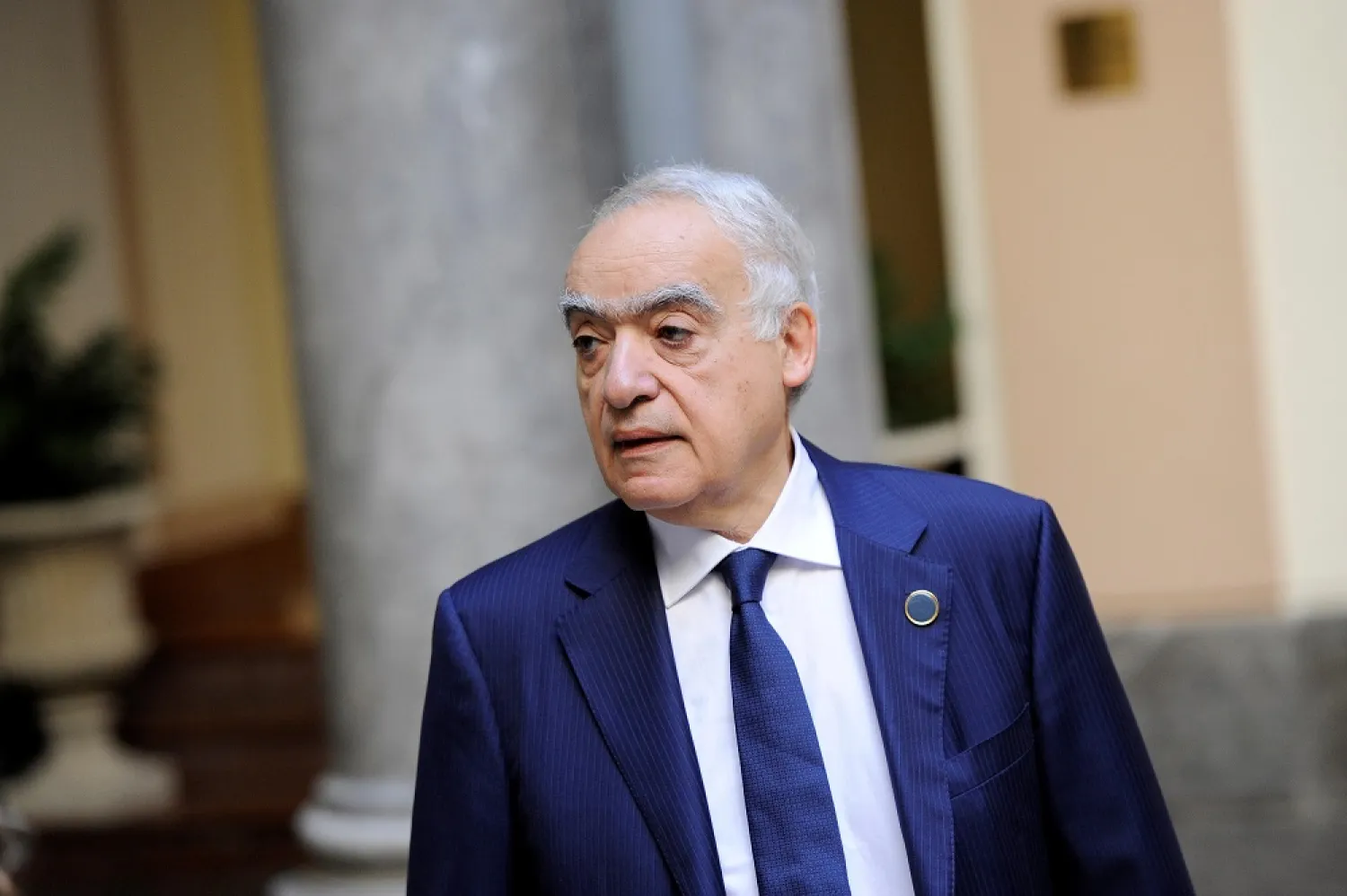United Nations envoy Ghassan Salame expressed for the first time on Friday his confidence that a political settlement may be reached in Libya instead of a military solution.
Salame was speaking at a joint press conference with Tunisian Foreign Minister Khemaies Jhinaoui after holding discussions in Tunis.
Replying to a question from Asharq Al-Awsat, he explained that his optimism stems from the series of talks he has held with the foreign ministers of member states at the UN Security Council and prominent Libyan leaders, including commander of the Libyan National Army (LNA), Khalifa Haftar and head of the Government of National Accord (GNA), Fayez al-Sarraj.
Salame revealed that the majority of influential figures believe that a military solution was “impossible” in Libya and they understood the need for a political settlement.
Commenting on the situation in Tripoli, he described the humanitarian and security situation after two months and a half of a “dangerous” and “reckless” war as “difficult” and verging on “catastrophic.” The situation has grown complicated after the LNA launched its operation on the capital, he explained.
Haftar’s forces kicked off the offensive to cleanse Tripoli of terrorist and criminal gangs on April 4.
Salame spoke of double standards adopted by some regional and international powers on reaching a ceasefire in the fighting.
Some countries claim to oppose the military option, but still provide political, security, financial and military support to one of the warring parties, he went on to say. Some powers are also arming the parties in blatant violation of Security Council resolutions.
The envoy also dismissed criticism against the UN mission in Libya, underscoring its “impartiality and credibility.”
He acknowledged that the mission occasionally encounters some difficulties in delivering humanitarian aid due to security and natural reasons, such as flooding that hit some regions of Libya during the holy month of Ramadan.









